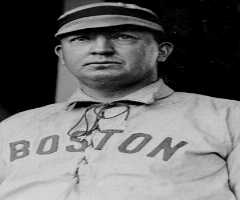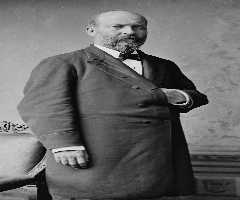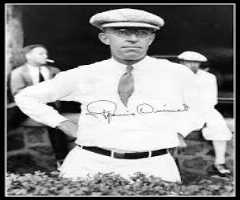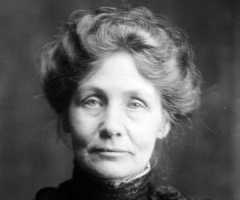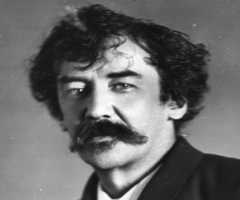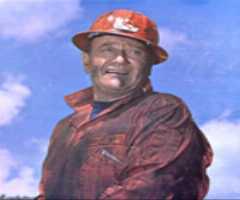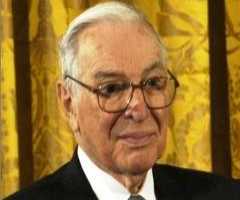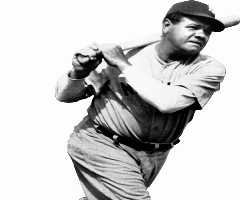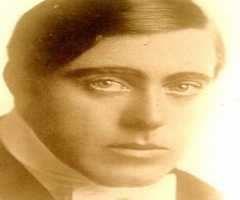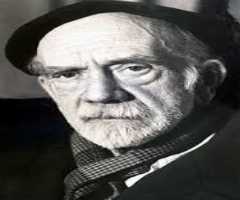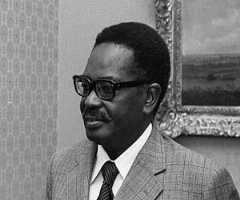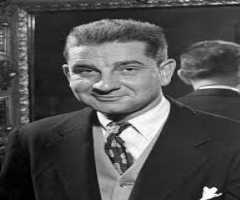Connie Mack Biography, Life, Interesting Facts

Birthday :
Died On :
Also Known For :
Birth Place :
East Brookfield, Massachusetts, United states of America
Zodiac Sign :
Cornelius McGillicuddy, the American professional baseball team owner, player, and manager is the most winning Major League Baseball manager in the baseball history. He managed 7,755 games, which is far more than anyone else in the history of baseball. Nobody comes even near to his record of 3,731 wins, which is almost 1,000 more than any other baseball manager. He was known as Connie Mack and popularly referred to as ‘The Tall Tactician’ or ‘Slats’ for his 6 feet 2 inches tall, thin body. As Connie Mack managed the Philadelphia Athletics club during its initial phase from 1901 to 1950, the team was also called as ‘the Mackmen.’ When he entered the game, it was known for roughnecks, but when he left, it was a gentlemen’s game
Early life
Connie Mack was born on 22nd of December, 1862 in East Brookfield, Massachusetts, USA. Mack's father, Michael McGillicuddy, had emigrated from Ireland to the USA with his wife, Mary McKillop. Mack’s father suffered from various physical ailments. He died when Mack was a teenager. Under such circumstances, Mack had to quit his studies in East Brookfield at a young age of 14. He had already started working at a cotton mill when he was 9. After his father’s death, he began working in various jobs to become the family breadwinner. He worked as a clerk, worker in a shoe factory, foreman and other petty jobs until the age of 21. He had already begun playing baseball during this time.
Playing Baseball
Connie Mack made a place in East Brookfield baseball town team at the age of 17. At the age of 21, he began to play as a catcher for the Meridien club in the Connecticut State League. It is here where his name got shortened to ‘Connie Mack.’ He played for some other minor teams for some time. His skills ultimately helped him to land a place on the Washington Nationals team in the National league in 1886. In the first season, his average was .361. But in the next two season, his average dropped and was .187 in 1888, about only a half of the first season. This fall can be attributed to the change in rules that removed the batter's privilege to call the pitcher to throw a low or a high pitch.
Towards the end of 1889, Connie Mack switched to Buffalo Bisons for the short-lived Players League. He suffered losses due to this decision as he had invested all his savings in the club and the league dissolved within a year. From 1891 to 1896, he remained as a full-time player for the Pittsburgh Pirates of the National League. He was one of the first catchers who didn’t position themselves in front of the backstop and instead stood directly behind the home plate. He was an average player. He survived due to his deception and creativity rather than ability during his 11 years of playing career.
Managerial Career
Connie Mack had already started his managerial career while he was still playing. He served as a player-manager for the Pittsburgh Pirates from 1894 to 1896. He retired as a full-time player in 1896 with a lifetime batting average of .245. From 1896 to 1900, he managed the Milwaukee Brewers in the Western League. Under him, the Brewers finished second in 1900. Soon, the Western League transformed into the American League and challenged the hegemony of the established National League.
Connie Mack played a significant role in the establishment of Philadelphia Athletics club in 1901. Mack was its manager, treasurer and also owned it partly with Benjamin Shibe as the chief financier. The new team was called ‘a white elephant' by John McGraw. But Mack took the criticism positively. He adopted Pachyderm as the mascot of the new team. He served as the manager of the team for next 50 years, the longest in baseball history. In 1902, the Athletics won the American League pennant.
Connie Mack led the Athletics to become World champions at the World Series in 1910, 1911 and 1913, and win 4 of 5 pennants between 1910 and 1914. The First World War made it difficult to survive for his team. The depression also disturbed Mack’s financial position. But Mack endured all these circumstances. When he retired at 87, he had a record of managing 7755 games with 48.1% winning percentage. He won 9 pennants and won 5 of the 8 World Series in which he appeared.
Connie Mack focused on discipline in his team. He even asked his players not to drink during some of the seasons or series. He didn’t rule by force or humiliating players in public. He insisted on getting desired results through kindness. He was a soft-spoken man and didn’t scold his players publicly. He remained reserved and dignified in the field. He didn’t lose his temper and remained a patient leader. In the last 16 years of his managerial career, his team became the laughingstock of baseball. Despite losing season after season, he refused to give up. He is remembered for his relentless optimism as a symbol of baseball.
Personal life
Connie Mack married Margaret Hogan in 1887. Margaret gave birth to 3 children. She died in 1892. Mack married again in 1910 to take Katharine Holahan as his second wife. They had four daughters and a son. Following the family tradition, the son was named Cornelius McGillicuddy Junior. Mack was a member of Knights of Columbus, the world’s largest Catholic fraternal service organization. As a devout Catholic, he didn’t engage in smoking and drinking. Mack died at the age of 94 in Germantown, Pennsylvania on February 8, 1956. His grandson Connie Mack III and great-grandson Connie Mack IV have made their name in the field of politics in the USA.
Legacy
Connie Mack left an indelible stamp on the game of baseball. He was inducted in the National Baseball Hall of Fame in 1937. The Philadelphia stadium which was initially called as Shibe Park was renamed to Connie Mack stadium in 1953. However, it was demolished in 1970.
More Sportsmen
More People From Massachusetts
-
![Richard Henry Dana, Jr.]()
Richard Henry Dana, Jr.
-
![Anne Sullivan]()
Anne Sullivan
-
![Johnny Appleseed]()
Johnny Appleseed
-
![Francis Ouimet]()
Francis Ouimet
-
![Emily Greene Balch]()
Emily Greene Balch
-
![James Abbott McNeill Whistler]()
James Abbott McNeill Whistler




